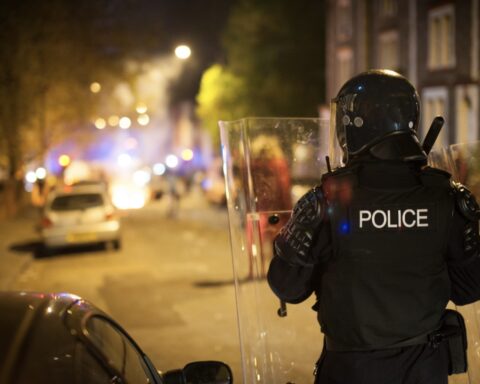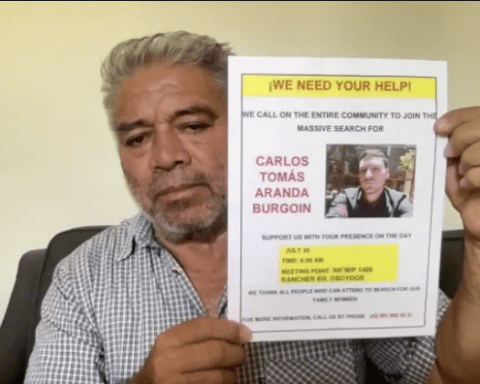One of the directors of Canada’s terrorism research centre says statements made this weekend by the chair of the Senate national security committee suggest the senator may have missed some of the finer points of his recent testimony.
Conservative Senator Daniel Lang told a crowd of students at the University of Ottawa’s Public Policy Conference on Saturday that “we need to recognize that radicalized thoughts lead to radicalized actions.” But just last week Lorne Dawson, co-director of the Canadian Network for Research on Terrorism, Security and Society, told the committee that research on radicalization consistently demonstrates that very few individuals who hold radical ideas ever actually graduate to committing violence and that generalizations about radicalization don’t help the fight to counter extremism in Canada.
We need to recognize that radical ideas lead to radical actions. It does not mean we should criminalize ideas, but we need to identify them…
“Research literature is overwhelmingly clear there is a very poor correlation between espousing ideas and engaging in action,” Dawson told iPolitics on Monday. “Obviously some people on the committee heard what we were saying and some didn’t.”
Dawson’s co-director, Daniel Hiebert, also said he disagreed with Lang’s point and noted it’s important to keep in mind the distinction between having radical thoughts and acting on those thoughts.
“You can’t perform a radicalized action unless you had a radicalized idea so yes, there is a connection between those things but nowhere near everyone who has radical ideas will perform radicalized actions,” he said. “The literature on these issues is very clear that it’s another conversion process. There’s one conversion process that happens between thinking mainstream ideas and having extremist ideas – that’s a pretty big kind of hurdle to jump over, it’s a pretty big conversion process that happens there. There’s yet another conversion process that happens between having extremist ideas and thinking that violence is an appropriate way to propagate those extremist ideas. So there’s no simple linkage between those two things. There’s sort of a necessary linkage — as I said, you can’t have B without A but A does not necessarily lead to B. “
Lang’s office sent an emailed statement in response for a request for clarification of his comments.
The statement reiterates the text of his speech at the conference.
“To be clear, I stated: We need to recognize that radical ideas lead to radical actions. It does not mean we should criminalize ideas, but we need to identify them; state that they have no place in Canadian society, even at university campuses – where sometimes the cloak of free speech is abused; and denounce those promoting them and facilitating such ideas – even if they are done in the name of religious ideology or doctrine,” the statement reads.
“In response to those who suggested I be specific: I was intentionally specific in the content of the speech. Please refer to recommendations six and seven: 6) We need to examine and seek ways to stop the spread of radical religious ideology in Canada by going to the roots of those who are promoting, funding, and facilitating its dissemination; 7) We need to support those courageous Canadians who are speaking out – especially in communities at risk. There are many Sikhs like Balraj Deol; Ujjal Dosanjh and Dave Hayer – and Muslims who are doing a great job. Groups like Muslims Facing Tomorrow need our help. We need to engage with those who are challenging the radicals and provide them greater support and assistance so that we can successfully expose and denounce radicalizers before this extreme political religious ideology spreads.”
The committee’s deputy chair, Senator Grant Mitchell, said it’s important to keep in mind there is still a lot that is unknown about what motivates individuals to make the leap from holding radical thoughts to carrying out violence.
“I wouldn’t disagree with what Senator Lang said. What I would say is we have heard a range of input that doesn’t say that all radicalized thoughts lead to radical action,” he said. “But because very, very, very, very, few people are actually radicalized by the range of radicalized thoughts that are out there in the world, it’s certainly not a definitive link,” he said.
Mitchell noted he does not think Lang was implying holding radical thoughts is the only precursor to committing radical actions and that witnesses have so far told the committee that there is not enough understanding of the complex factors that come together to inspire individuals to act on their radical ideas.
You can’t perform a radicalized action unless you had a radicalized idea so yes, there is a connection between those things but nowhere near everyone who has radical ideas will perform radicalized actions,…
He also said he was unclear on another statement of Lang’s made during the same speech, in which he said Michael Zehaf-Bibeau attacked Parliament Hill as part of a plan to carry out jihad.
“Another radicalized Islamist attacked and killed Cpl. Nathan Cirillo at the National War Memorial and then entered Parliament Hill determined to carry out his own personal jihad,” Lang told the crowd.
Mitchell says he’s not quite sure from whom Lang drew that conclusion, given there has been no public confirmation from the RCMP that Zehaf-Bibeau was motivated by jihad.
RCMP Commissioner Bob Paulson said just one day after the attack that Zehaf-Bibeau’s motivation was likely linked to the Libyan embassy refusing him a passport.
While former co-workers have said Zehaf-Bibeau showed them videos of Taliban attacks back in 2007, they say his motivation for trying to go to Libya was to escape his struggle with drug addiction and that he did not come to Ottawa with the intent of attacking Parliament Hill — rather, it’s believed the attack was a backup plan if his application for a Libyan passport was denied.
“I really enjoy Dan Lang and he’s a great senator – (but) I don’t think we know that yet. It isn’t public. If the police know it, they haven’t said it,” said Mitchell. “I know Mr. Harper has been drawing the link between the Parliament Hill shooter and some sort of radicalized Islamic perversion but we have no public proof of that. Not yet.”
Re-published in partnership with iPolitics.ca




